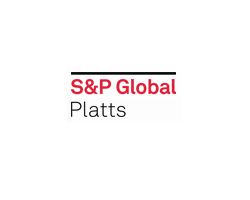Analysis: As Iron Ore Hits $100, Analysts See Longer Term Price Support on China Steel Output

May 19, 2019 - As iron ore prices surpassed $100/dry mt CFR China on Friday for the first this year, hitting their highest level since early 2014, top analysts see support from an increase in Chinese steel output in April to over 1 billion mt on an annualized basis.
Vale's Brazilian iron ore mine cuts are limiting supplies from the world's biggest miner of the commodity to meet increasing demand in Asia, even as European demand slows on higher steelmaking costs and continued steel price falls so far this year squeezing operating margins.
Iron ore prices will hit triple digits for some time, as China's crude steel output rise requires more seaborne iron ore at a time of lower production in Brazil, Jim Lennon, founder of Red Door Research in London and a Macquarie Bank consultant, forecast on Thursday.
S&P Global Platts on Friday assessed the benchmark TSI IODEX 62% Fe Iron Ore Index at $100.40/dmt CFR North China, up $2.40 from Thursday. The price is up $28.05, or 39%, so far this year.
A Chinese industry crude steel production forecast for 2019 of a 50 million mt increase from 2018's 927 million mt would very likely be sufficient to take benchmark iron ore fines import prices up significantly, Lennon said, in remarks to the inaugral Platts Global Metals Outlook Summit in London.
The rebound in China's steel output after a slowdown in Q4 2018 comes at a time of uncertain supply from Brazil following mining cuts in the past few months.
Vale saw southern Brazilian iron ore output and processing activity hit by both outright volume and saleable quality, after complexes were closed following the Brumadinho tailings dam collapse in January.
Safety reviews slowed down iron ore operations at some other companies in the region.Stricter environmental controls and mining industry reforms in China mean there is limited domestic iron ore supply able to balance the market and insufficient higher quality coking coal to meet demand without sustained imports, said Neil Bristow, managing partner of H&W Worldwide Consulting.
Logistics constraints in Australia and at other ports, and limited expansion in supply were supporting coking coal spot prices, which remain stoked by continued strong imports into China, Bristow told the conference in London.
He previously led BHP Billiton's market anlaysis in steel raw materials from Asia-Pacific, and works closely with the coal and coke industry, steering major industry conferences which increasingly focus on India, as the largest growing market for coking coal.
Demand for higher quality and lower impurity coking coals is seen on China's dependence to better meet coke demand and cut air emissions with coal availability in the domestic market.
Higher iron ore prices may be leading to greater usage of ferrous scrap in the future, with some potential to raise scrap consumption in integrated steel plants in China toward ratios typically seen at mills in Japan and Europe, as well as at new EAF mills in China, Lennon added.

